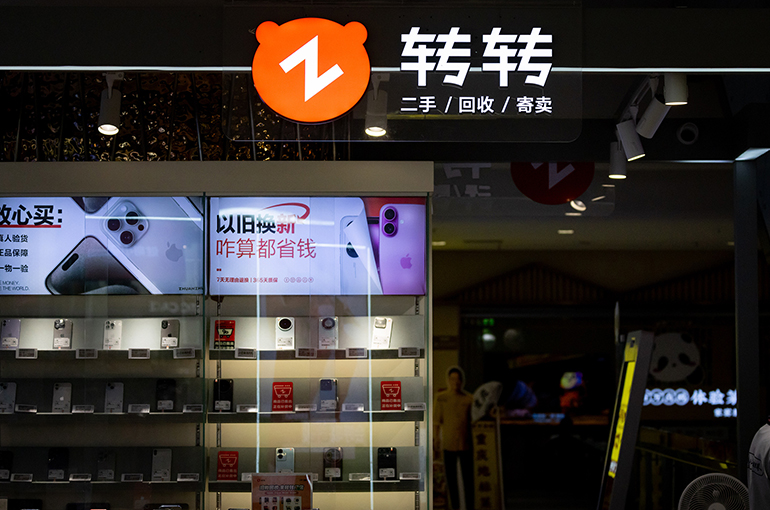 Chinese Used Goods Site Zhuanzhuan to Close C2C Market Due to Disputes, Profit Margin
Chinese Used Goods Site Zhuanzhuan to Close C2C Market Due to Disputes, Profit Margin(Yicai) Sept. 23 -- Zhuanzhuan, one of China’s largest platforms for buying and selling secondhand goods, is to shut its consumer-to-consumer Free Marketplace as a result of difficulties in resolving transaction disputes and the narrow profit margin.
Zhuanzhuan will end the C2C trading service on Sept. 29, the Beijing-based company said in an open letter yesterday, and will then focus squarely on its Official Verification business, a consumer-to-business-to-consumer model for inspecting and verifying used items. Closing the marketplace was a difficult choice but has to be done, Chief Executive Huang Wei said.
Founded in 2015, Zhuanzhuan is a unit of 58.com, China's largest online marketplace for classifieds, and has received funding from Tencent Holdings and Xiaomi.
The online C2C flea market was the the Beijing-based company’s starting point, but it also provided a space for online fraud and shady deals, and the company struggled to find effective ways to improve dispute resolution between buyers and sellers.
The C2C model struggles with low trust, limited supply, weak conversion rates, and narrow profit margin, while the C2B2C approach fits second-hand e-commerce far better, as platform oversight improves supply and credibility, encouraging buyers to transact, Zhuang Shuai, founder of Bailian Consulting, told Yicai.
Zhuanzhuan began pivoting to the C2B2C model in 2019, a system that routes used goods through the platform for inspection and verification, helping to ensure that certain standards are met and offering after-sales guarantees.
Thanks mainly to this business, the company made a profit for the first time in 2022 and its earnings have grown since then. The C2C business now makes up less than 3 percent of Zhuanzhuan’s total gross merchandise volume, it revealed.
Given the relatively small size of Zhuanzhuan’s C2C operations, the shutdown is expected to have only a minor impact on the wider industry, Zhuang added.
A lack of regulation has also been a problem for the C2C business, according to Chen Liteng, an analyst with digital economy website 100EC. The information asymmetry between sellers and buyers could easily lead to fraud, Chen noted, and there was also a lack of unified quality inspection standards and third-party guarantees.
Editor: Tom Litting